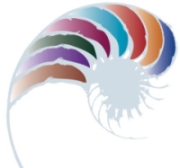<-- Homepage No more tips or dumps.

New Zealand Curriculum (NZC)
This field trip supports a cross-curricular approach to teaching and learning. It is guided by the 2007 New Zealand Curriculum and Te Mātaiaho –The Refreshed New Zealand Curriculum. It aligns best with, but is not limited to, the learning areas, year groups and progressions presented below.
Select one or more learning areas, concepts and progress outcomes to suit your students’ interests and learning needs.
Use this learning experience as a springboard for multiple areas of inquiry. Look for ways to make connections to learning that matters to students, as well as nationally and locally.
Te ao tangata | Refreshed social sciences learning area
Progress outcome by the end of year 6:
****TABLE TO GO HERE****
Social sciences continued (NZC 2007)
The social sciences learning area is about how societies work and how people can participate as critical, active, informed, and responsible citizens. Contexts are drawn from the past, present, and future and from places within and beyond New Zealand.
- Level 1: Understand that people have different roles and responsibilities as part of their participation in groups.
- Level 2: Understand how people make choices to meet their needs and wants | Understand how places influence people and people influence places | Understand how time and change affect people's lives.
- Level 3: Understand how groups make and implement rules (and laws) | Understand how people view and use places differently | Understand how people make decisions about access to and use of resources.
- Level 4: Understand how producers and consumers exercise their rights and meet their responsibilities | Understand how exploration and innovation create opportunities and challenges for people, places, and environments | Understand that events have causes and effects | Understand how formal and informal groups make decisions that impact on communities.
Science (NZC 2007)
Nature of science
The nature of science strand is the overarching, unifying strand. Through it, students learn what science is and how scientists work. They develop the skills, attitudes, and values to build a foundation for understanding the world. They come to appreciate that while scientific knowledge is durable, it is also constantly re-evaluated in the light of new evidence. They learn how scientists carry out investigations, and they come to see science as a socially valuable knowledge system. They learn how science ideas are communicated and to make links between scientific knowledge and everyday decisions and actions. These outcomes are pursued through the following major contexts in which scientific knowledge has developed and continues to develop.
- Participating and contributing
Levels 1-2: Explore and act on issues and questions that link their science learning to their daily living.
Levels 3-4: Use their growing science knowledge when considering issues of concern to them. - Investigating in science
Levels 1-2: Extend their experiences and personal explanations of the natural world through exploration, play, asking questions, and discussing simple models.
Levels 3-4: Ask questions, find evidence, explore simple models, and carry out appropriate investigations to develop simple explanations.
Physical world
- Physical inquiry and physics concepts
Levels 1-2: Explore everyday examples of physical phenomena (electricity).
Material world
- Chemistry and society
Levels 3-4: Relate the observed characteristic chemical and physical properties of a range of different materials to technological uses and natural processes (landfill liner, decomposition, methane).
Living world
- Ecology
Levels 1-2: Recognise that living things are suited to their particular habitat (soluble run-off, noise, odours, wind-blown rubbish, visual considerations).
Levels 3-4: Explain how living things are suited to their particular habitat and how they respond to environmental changes, both natural and human-induced (methane capture for electricity generation and reducing environmental harm).
Planet Earth and beyond
- Interacting systems
Levels 1-2: Describe how natural features are changed and resources affected by natural events and human actions (the modern landfill, methane capture for electricity generation and reducing environmental harm)
Technology (NZC 2007)
Technological knowledge
- Technological products
L1: Understand that technological products are made from materials that have performance properties (state-of-the-art liner, environmental monitoring and testing, methane capture for electricity generation). - Technological systems
L1: Understand that technological systems have inputs, controlled transformations and outputs (methane capture for electricity generation and reducing environmental harm).
Nature of technology
- Characteristics of technology
L2: Understand that technology both reflects and changes society and the environment and increases people's capability (state-of-the-art liner, environmental monitoring and testing, methane capture for electricity generation). - Characteristics of technological outcomes
L2: Understand that technological outcomes are developed through technological practice and have related physical and functional nature (methane capture for electricity generation and reducing environmental harm).
English (NZC 2007)
Listening, reading and viewing
Ideas: Show a developing understanding of ideas within, across, and beyond texts.
E.g. Indicators at level 3:
- uses their personal experience and world and literacy knowledge confidently to make meaning from texts
- makes meaning of increasingly complex texts by identifying main and subsidiary ideas in them
- starts to make connections by thinking about underlying ideas in and between texts
- recognises that there may be more than one reading available within a text
- makes and supports inferences from texts with increasing independence.



